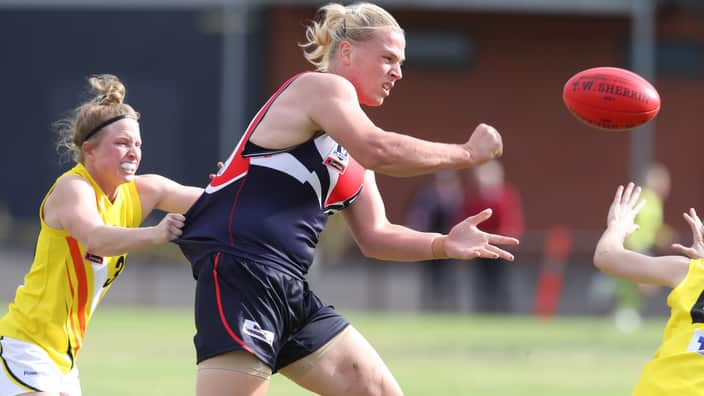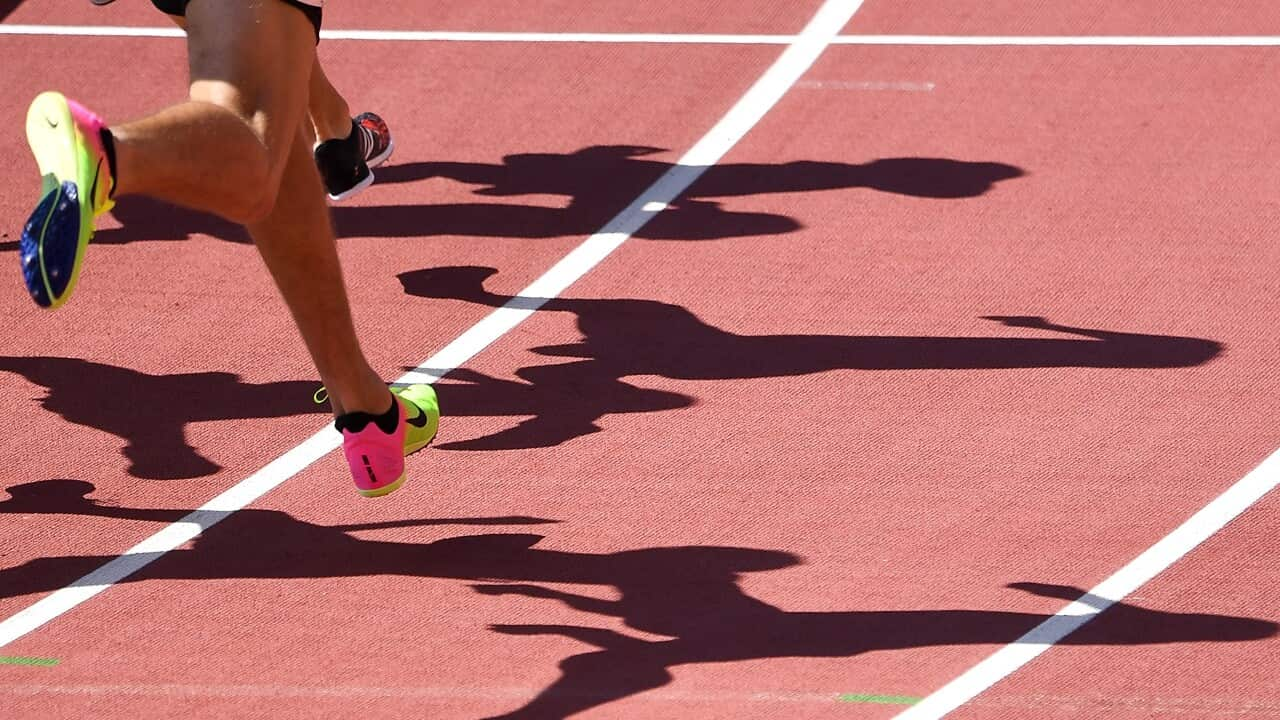Key Points
- World Athletics has announced a ban on transgender women competing in female categories.
- Transgender athletes have described the ban as 'hurtful' and 'disappointing'.
- World Athletics says the ban is in the name of 'fairness'.
Middle-distance runner Ricki Coughlan admits she was “greatly fearful” when she first came out as transgender, but quickly found an Australia that was “welcoming and inclusive” and willing to embrace her.
“I had men calling me a role model for their daughters,” she said, recalling many instances shaking hands and signing autographs for an adoring public.
Ms Coughlan first rose to prominence in the early 1990s, when she came out publicly following fears of a supposed leak to the media revealing that a transgender woman was competing in local athletics.
As the first openly-transgender woman permitted to participate in athletics by a sporting body, she is well aware of the challenges faced by trans and gender-diverse people in sport.
Not surprised by recent ban on transgender athletes
When the World Athletics Council announced last week it would bar transgender women from competing in female international track and field competitions, Ms Coughlan said she wasn't surprised but disappointed by the decision.
“I feel that [draws] battlegrounds over whether transgender people have a right to participate in our community," she said.
“Athletics is a flagship sport of the Olympic Games, and other sports look to sports like athletics."
However, she is heartened that while the global athletics body has enforced the ban, Australian Athletics has not changed their position on inclusion in sport.
“Their position is one of a welcoming atmosphere for everyone to participate…and I celebrate that,” she said.
“We are leading the world in this space, and I think we can all be proud.”

Track and field has banned transgender athletes from competing in female categories at international competitions. Source: EPA / Christian Bruna
Athletes with differences in sex development (DSD) will also be deemed ineligible unless they have undergone hormone-suppressing treatment ahead of competing.
The Council said the decision was to “prioritise fairness and the integrity of the female competition before inclusion”.
There has been a mixed reaction from athletes across the different sporting codes, with some saying the new rules are discriminatory and harmful.
'Scared of what they don't know'
Australian National Squad Handball player Hannah Mouncey has been the subject of public debate on multiple occasions.
The openly-transgender athlete was denied the opportunity to play for the ACT representative team in October 2016.
She was also barred from participating in the Women’s Australian Football League (AFLW) after being nominated for the draft in 2017.

Transgender athlete Hannah Mouncey has been temporarily banned from both handball and AFL. Source: AAP
“People are scared of what they don’t know,” she said in an interview with ABC News.
“They are not taking the time to actually get to know trans people or … what’s involved in sport, and the effect testosterone suppression has on performance."
Ms Mouncey described the decision by World Athletics as being “entirely political” and not based in any concrete reports or facts.
“It is a witch hunt. There’s no other word for it,” she said.
“Trans people all know that this is based on nothing but fear and hatred.”
When asked whether the new rules would spill over into community sports, Ms Mouncey stated she believed that it would discourage transgender people and people with DSD from participating.
“Trans people already … weren’t competing in sport or even taking part in exercise as it is,” she said.
“Now the message is being delivered that ‘you’re not welcome’.”
Retired Commonwealth Games gold medallist and Olympic track and field athlete Jane Flemming has welcomed the decision from the World Athletics Council, describing it as a “win for fairness” for women in sport.
“I am happy for [transgender women] to compete in any category where they don’t have an unfair advantage,” she told SBS News.
“Regardless of whatever transitioning therapies…or anything a trans female has gone through, there is still a residual advantage.”
While the former champion believes that transgender people should still have an opportunity to compete, she cites biological differences and “residual advantages” as her core reason for concern when it comes to them competing with women who were assigned female at birth.
“It is not fair to have someone with elevated testosterone and all those other advantages competing in the female category,” she said.











